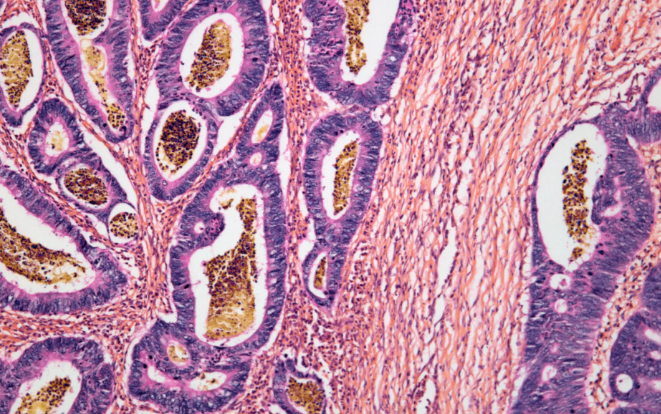An early-stage study presented at the American Association for Cancer Research’s annual meeting has revealed promising results for a new cancer treatment approach, suggesting that some patients could potentially avoid surgery by relying on an immune-based therapy to shrink tumors.
The study, published in the New England Journal of Medicine, demonstrated that 92% of patients who received a checkpoint inhibitor treatment to help their immune systems target and shrink tumors showed no detectable signs of disease after two years. Notably, these patients did not undergo the typical surgery often considered the standard treatment for their conditions.
Among those patients was 71-year-old Maureen Sideris, who was diagnosed with gastroesophageal junction cancer in 2022. After experiencing difficulty swallowing and digesting food, Sideris sought medical help and was advised to undergo surgery, followed by chemotherapy and radiation. Faced with the prospect of invasive treatments, she was introduced to a clinical trial led by Dr. Andrea Cercek, a colorectal cancer expert at Memorial Sloan Kettering Cancer Center.
Dr. Cercek had previously conducted a successful trial on rectal cancer patients, where every participant treated with the checkpoint inhibitor dostarlimab went into remission, with some staying cancer-free for up to four years. This led Dr. Cercek to investigate whether the same treatment could work for other cancers, including gastroesophageal junction cancer, the type Sideris had.
Despite the treatment being experimental, Sideris agreed to participate in the trial, which involved monthly 45-minute infusions of the drug. The results were striking—like many others in the study, Sideris did not require surgery and showed no evidence of cancer after two years of treatment.
The study found that 64% of patients with non-rectal cancers, including those with cancers of the esophagus, stomach, and colon, showed no signs of disease after one year. When combined with the rectal cancer patients, 92% of all participants remained free from cancer recurrence after two years. For those who did experience a recurrence, the treatment significantly reduced the size or number of their tumors.
Dr. Cercek emphasized that this therapy could offer substantial improvements in patients’ quality of life by reducing the need for invasive treatments like surgery, chemotherapy, and radiation. Though immunotherapy can have side effects, such as fatigue, skin rashes, and thyroid issues, these are often manageable. For Sideris, the side effects were minimal, and the treatment proved to be the easiest part of her journey.
Dr. Cercek is continuing her research to assess whether these promising results can lead to longer-term survival benefits, as well as to understand why some patients did not respond to the treatment. She is hopeful that the treatment could eventually replace traditional approaches for patients with early-stage or localized cancers, provided there is no distant metastasis.
The promising results from the trial have already influenced treatment guidelines, with the National Comprehensive Cancer Network including dostarlimab for specific genetic mutations, and the U.S. Food and Drug Administration granting it fast-track designation for these cancers. Dr. Cercek remains optimistic about replicating these outcomes across other types of genetically altered tumors.









































